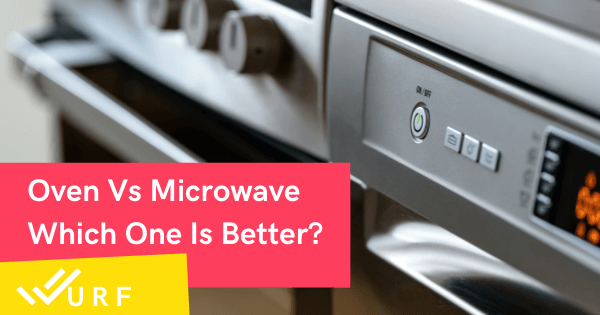How To Care For Cast-Iron Cookware (Right Way To Season/ Clean)
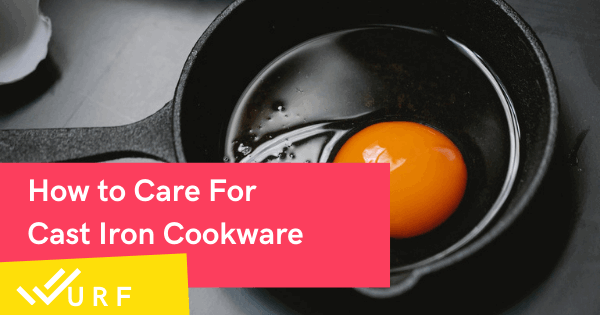
High quality cast-iron cookware can cost quite a bit!
You don’t want to waste hard-earned money by not making the most out of your new pan! Or not taking proper care of it!
Here are all the things you can do to make sure your cast-iron cookware lasts as long as possible!
Quick Tips On Taking Care Of Cast Iron Cookware
1. Avoid Rusting At All Costs
An obvious point when talking about iron. Never store your cast iron pan away in the cupboard until it is fully dry.
Additionally, don’t soak your pan in water overnight!
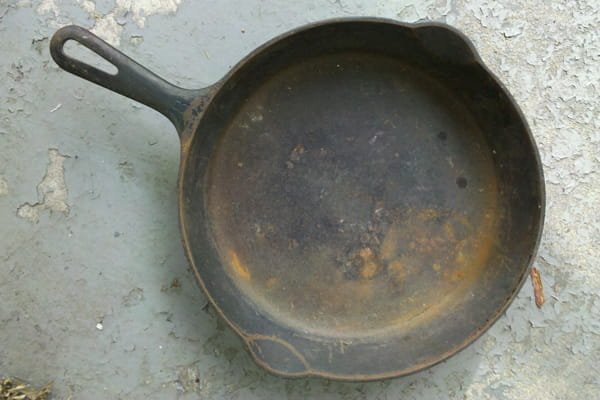
2. Season Your Pan
In relation to the previous point, wipe/ brush on a thin layer of oil all over the pan before storing it away for the next cooking session!
More details on how to do this further down this post.
3. Handwash Only
Resist the temptation to plop your cast iron cookware into the dishwasher! Detergent and heat will lead to rust fast!
4. Don’t Put It Through Extreme Temperatures
If your cast iron pan is searing hot, don’t immediately plunge it into cool water! Likewise, don’t immediately turn on the heat to the maximum when you start cooking! To avoid warping!
5. Wash The Pan After Cooking
Leaving food residue on the pan for too long will not only make it harder to clean afterwards:
But these food bits can lessen the non stick properties that come from the seasoning layer of your cast iron cookware.
6. Try Not To Bang Or Drop Your Pan!
Another obvious point that lead to serious damage (to your counter too) or even a handle popping off!
If you use your pan all the time consider just leaving it on the stove!
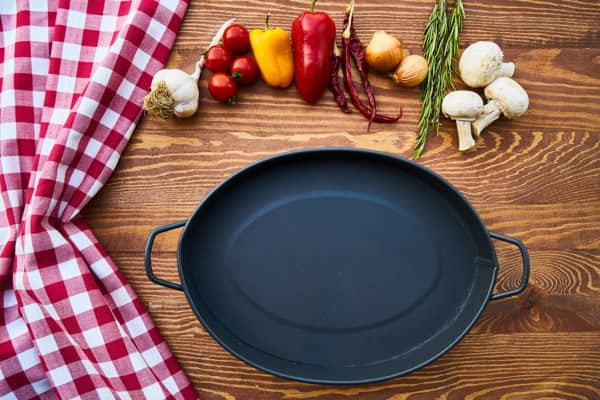
How To Clean Your Cast Iron Cookware
Always do this by hand and after each cooking session!
Just a little bit of soap will do. And avoid metal scrubbers or metal brushes at all cost! The stiffer dark green part at the back of your kitchen sponge is fine.
To make cleaning easier, you can wipe off excess oil with a kitchen towel first. Sometimes (i.e. simple cooking), you can get away with just wiping the pan!
You don’t always need to use soap on your iron cast cookware! For such cookware, oily residue is actually preferable!
If there are stubborn remnants of food left, put some hot (not boiling) water in to the pan and leave it to soak (<5 minutes). Before trying to clean the pan again.

How To Maintain The Seasoning Layer Of Your Cast Iron Cookware
After cleaning your cast iron pan, wipe it dry with a dish cloth. Some black residue left on the pan is ok. That’s normal and is part of the seasoning layer.
Then take another piece of paper towel to lightly coat/ buff the surface of your pan (interior, exterior, and handle) with oil. A ¼ or ½ of a teaspoon of oil should do the trick!
Note: Oils like olive oil and grapeseed oil are not advisable as they go rancid fast. Butter, lard, corn oil, or coconut oil are longer-lasting options if you don’t cook every day
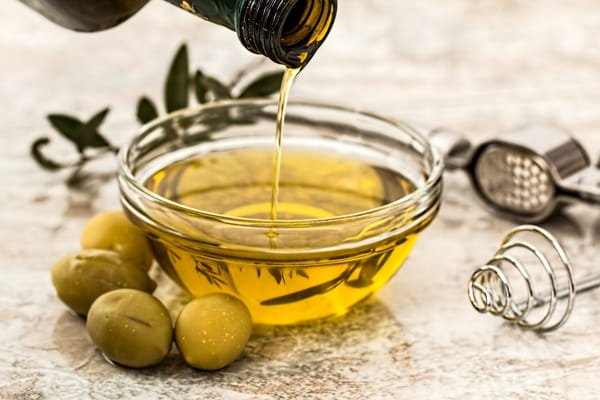
The surface of the pan should look matte. But not completely dry or oily.
Seasoning the pan in this manner helps to prevent rust and maintain that non-stick effect!
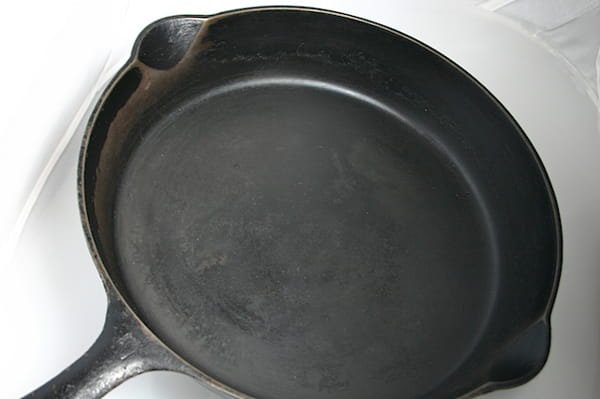
Did you know that the non stick effect gets better the more you use your cast iron cookware?
Well seasoned cast iron pans are some of the best non stick frying pans around!
How To Store Cast Iron Cookware
It’s all about avoiding the formation of rust. And that means the main focus is to limit exposure to humidity.
Keep your cast iron cookware somewhere that’s cool and dry. Do not stack your cast-iron cookware on top of one another!
If you want to be extra sure that your cast iron cookware is fully dry before you store it, heat it up on the stove to evaporate off any remaining moisture!
As long as you take care of your cast iron cookware, it’s highly unlikely that the pre-seasoned layer will need to be redone (i.e. re-seasoned).
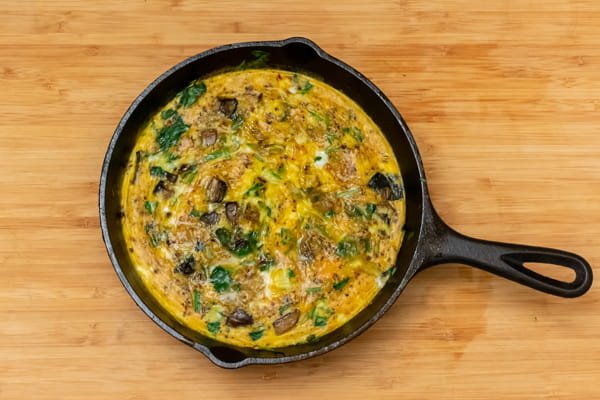
Which brings us to the next point:
How To Properly (Re) Season Cast-Iron Cookware
This re-seasoning process is similar to the seasoning process explained earlier. But instead of heating the pan on a stove or during your next cooking session:
You will need to stick the pan in an oven multiple times. And hence this process can be very tiresome if done frequently. The settings for the oven should be 230°C and for 30 minutes.
Tip: Open a window, it may get smoky.
An oven has better heat distribution than your stove if you’re trying to season your entire pan. You can also go the extra mile and turn the pan upside down onto a baking sheet or foil for baking.
To ensure that the oil coats the pan evenly (via gravity)!
Then you repeat the seasoning process 3 to 4 more times! After which, turn off the heat and just let the pan cool on its own.
How To Test Your Cast Iron Cookware
You guessed it! The best way to test the non stick property of your cast iron cookware (i.e. seasoning) is to fry eggs (with a little bit of oil) on it!
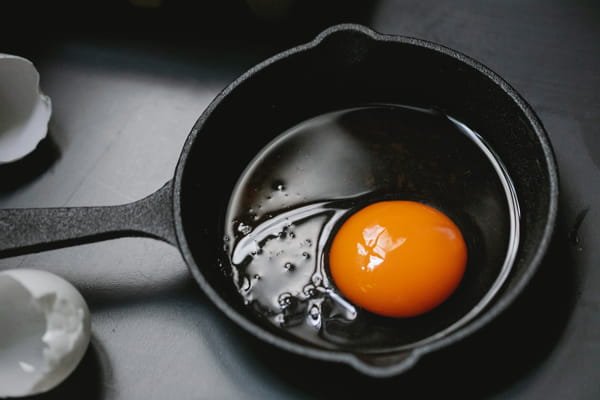
It works if the egg hardly sticks!
By looking at the pan, you can also tell if the seasoning layer is ok if the surface of the pan has a slight but dark sheen to it.
It should not feel greasy or sticky.
Nor should there be any parts of the pan that are dry or rusty!
Verdict
See? It’s not that complicated to maintain cast iron cookware!
Try to use your cast iron cookware as much as you can. And when you’re not using it, just keep it well-oiled and dry.
Related posts you might like:



